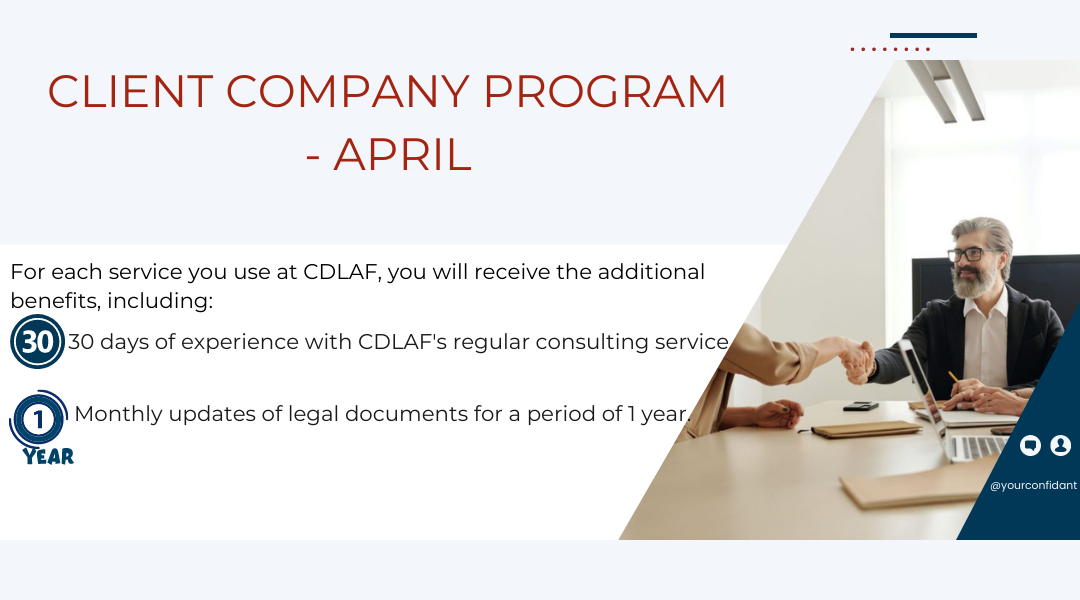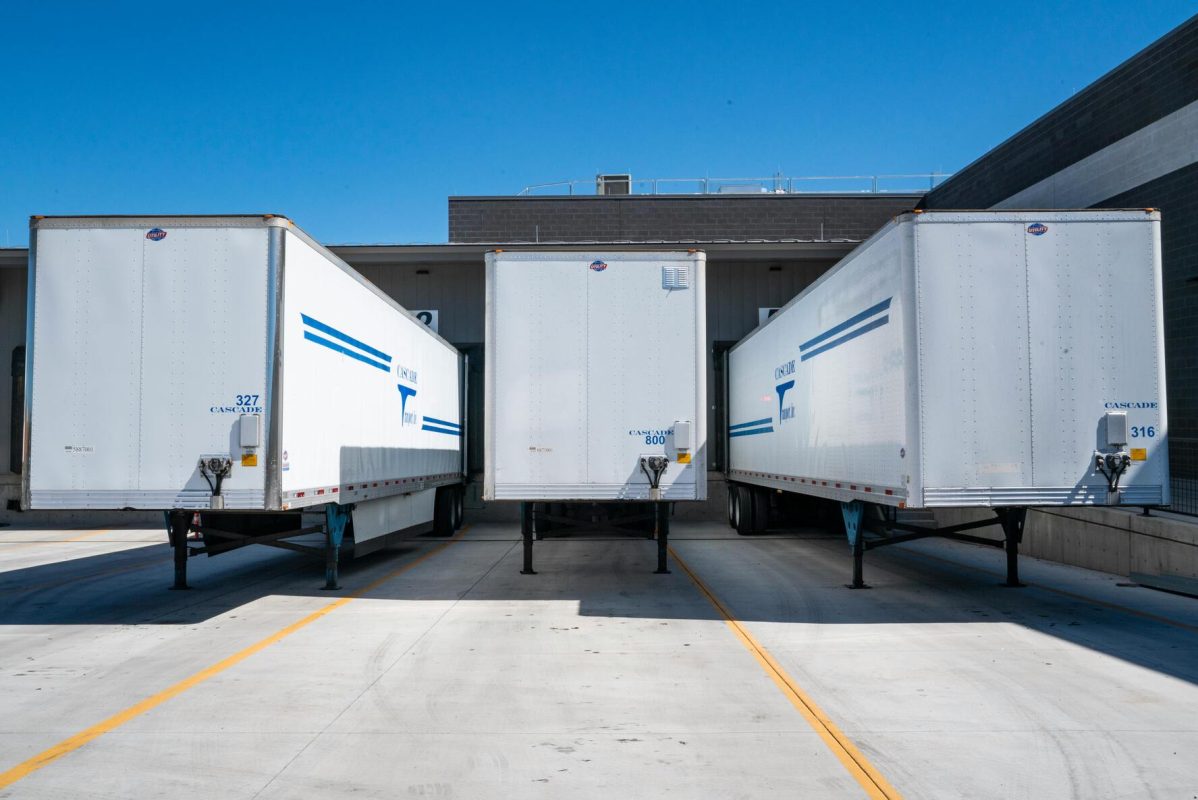Handling labor discipline in accordance with the law, statute of limitation and form of handling
Handling labor discipline is among the most crucial responsibilities of employer in maintaining enterprise compliance. However, this often encounters numerous difficulties and challenges. Sometimes, mishandling a violation can occasionally lead to severe repercussions for the company and its image. Thus, to handle labor discipline effectively, managers shall have knowledge and experience in labor law, as well as comprehend the regulations, procedures, and processes of handling discipline.

In this article, we will discuss what you need to know to handle labor discipline accurately, lawfully, and efficiently. We hope that this information will aid managers and employers in making sound decisions concerning labor discipline.
1.Forms of handling labor discipline
According to the regulations of the Labor Law, the enterprise is currently allowed to apply some forms of handling labor discipline , including reprimand, deferral of salary raise for up to 6 months, demotion, and dismissal. Some enterprises have now separated it into oral and written reprimand. This method of recording violations is still considered legally compliant with Labor Law. However, we do not recommend our Clients to use the form of “oral reprimand” due to its deterrence power and the difficulty of keeping track of violations.
Currently, Labor Law only recognizes a general name for the form of handling labor discipline (except for the form of dismissal), without specifying which behaviors or levels of violation shall be subject to reprimand, deferment of a pay raise, or demotion. This issue is delegated to the enterprise; accordingly, the employer has the responsibility to record in documents such as Labor Regulations or Labor contracts (in case of fewer than 10 employees and has not issued Labor Regulations) the corresponding violations and levels for each form of handling labor discipline.
This can also be understood that the Labor Regulations or Labor Contracts shall be specify all violations so that when the employee commits a violation, the employer can refer to the listed actions in those documents to apply corresponding forms of handling labor discipline.
We have analyzed this issue very clearly in the article
2.Statute of limitation for handling labor discipline
Once the employee’s disciplinary violation has been determined and recorded in internal documents as we analyzed above, the next step for the employer is to consider whether there is still a statute of limitation to apply for the handling labor discipline.
What is the “Statute of limitation for handling labor discipline”?
The statute of limitation for handling labor discipline is understood as the period of time prescribed by law, and upon its expiration, the employer is not allowed to impose the handling labor discipline on the employee, except in cases where the law allows for an extension of the statute of limitation.
Accordingly, the statute of limitation for handling labor discipline is 06 months from the date of the violation, in the case the violation is directly related to finance, property, disclosure of technology, or employer’s secret business, the statute of limitation for handling labor discipline is 12 months. However, this statute of limitation shall be extended further when the statute of limitation expires; or when the statute of limitation is still less than 60 days, the statute of limitation could be extended to handle labor discipline, but not later than 60 days from the date of expiration of the statute of limitation. The extension shall only be extended when the employee who is in one of the following cases:
- Taking leave on account of illness or convalescence; other types of leave with the consent of the employer;
- Being detained or remanded;
- Waiting for the results of the authorized investigative agencies verification and conclusion regarding the violation;
- The female employee is pregnant, on maternity leave or raising a child under 12 months of age.
Please note that this is the statute of limitation for handling of labor discipline, after which the employer is not allowed to issue any decision on handling of labor discipline.
3.Cases that are not subject to handling labor discipline
Once the employee’s violation has been determined and there is still a statute of limitation for handling labor discipline, the employer shall reevaluate whether the employee falls within the cases allowed by Labor law to not be handled labor discipline. These cases are those that we have listed in Section 2 above. For these cases, the employer shall monitor the statute of limitation as analyzed above to ensure that there is a statute of limitation to consider to handle labor discipline.
In addition, Labor Laws also stipulate that handling labor discipline shall not be taken against employee who violates labor discipline while suffering from mental illness or another condition that impairs his/her cognitive or behavioral control.
It should be noted that handling labor discipline against employee falling within cases not subject to handle labor discipline can also serve as a basis for competent authority to invalidate the enterprise’s handling labor discipline decision.

4.Steps, procedures for handing labor discripline
Employer not only ensures that the violation has been defined in the Labor Regulation or the Labor Contract (in terms of content), but also ensures the process of step of handling labor discipline in accordance with law (in form) to the following steps:
Step 1: When an employer discovers a disciplinary violation by an employee at the time of the offense, he/she shall proceed to draft a Violation Report and notify the labor representative organization at the workplace where the employee is a member, or the legal representative of an employee under 15 years old.
If the employer discovers the violation after the time of the offense, he/she shall collect evidence to prove the fault of the employee.
Step 2. Invitation notice for the handling labor discipline meeting
At least 05 working days before the date of conducting the handling labor discipline meeting, the employer shall notify individuals including the content, time, and place of the handling labor discipline meeting, the name of the person being disciplined, and the violated behavior of the handling labor discipline to the individuals include:
- The Trade Union Executive Committee at the workplace or The Trade Union Executive Committee at the higher level if The Trade Union Executive Committee at the workplace has not been established.
- The employee, and in the case of individual under 15 years old, his/her legal representative shall participate.
The invitation notice shall be made in writing and fully record all information about the time, place, reason for the meeting, and the attendees,… and ensure that the invitation notice has been sent to the attendees listed above. The employer also needs to provide evidence to prove that the invitation notice has been legally sent to the attendees.
In the event that one of the parties required to attend the handling labor discipline meeting is unable to attend at the time and place notified, the employee and employer shall agree on a change in the time and place of the meeting. If the two parties cannot come to an agreement, the employer shall decide on the time and place of the meeting;
In the event that one of the parties required to attend the meeting fails to confirm their attendance or is absent, the employer shall still proceed with the handling labor discipline meeting.
Step 3. Drafting meeting minutes
The content of the meeting regarding handling labor discipline shall be recorded in the meeting minutes, which shall be signed by all participants before the end of the meeting. In cases a participant does not sign the minutes, the person responsible for drafting the minutes shall state the full-name and reason for not signing (if any) in the content of the minutes.
Step 4. Issuing the Decision on Handling labor discipline
After the handling labor discipline meeting has concluded, the employer shall base their decision on the severity of the incident and the meeting’s content to issue a Decision on disciplinary action.
Note that the Decision on Handling labor discipline shall be issued within the statute of limitation for handling disciplinary action.
Step 5. Send the Decision on Handling labor discipline
The employer shall send the Decision on Handling labor discipline to The Trade Union Executive Committee at the workplace, the employee, and their legal representative (if the employee is under 15 years old).
5.Things that are not permitted when handling labor discipline
Besides complying with the above-analyzed contents, employer shall also note that:
- Multiple disciplinary actions shall not be applied to a single violation of labor discipline.
- When the employee commits multiple violations of labor discipline, only the highest labor discipline corresponding to the most serious violation shall be applied.
- It is strictly prohibited to infringe upon the health, honor, life, reputation, and dignity of the employee.
- Imposing monetary fines or pay cuts instead of handling labor discipline;
- Handling labor discipline shall not be taken against employee for violations that are not specified in the Labor Regulations, or not agreed upon in the signed Labor Contract, or not governed by Labor Law.
Thus, it can be seen that handling labor discipline is not just a matter of observing misconduct and issuing a Decision on Handling labor discipline, but for the disciplinary actio handling labor discipline to be considered legal, the entire process of handling labor discipline, from recording the behavior to determining the current status of the employee, proving the employee’s fault (a mandatory requirement), notifying, organizing meetings, and sending documents to related parties, shall all comply with the provisions of the law and internal documents (Labor Agreements, Internal Labor Regulations, Labor Contracts…).
Handling labor discipline in accordance with the law, statute of limitation, and form of handling labor discipline is an extremely important issue for any organizations or enterprises. To ensure fairness and respect for the rights of the employee, it is necessary to comply with the relevant regulations and laws governing this matter. At the same time, implementing the handling labor discipline process correctly and within the appropriate statute of limitation is also an important factor in avoiding disputes and conflicts in the company.
Time of writing: 10/04/2023
The article contains general information which is of reference value, in case you want to receive legal opinions on issues you need clarification on, please get in touch with our Lawyer at info@cdlaf.vn.
At CDLAF, we provide legal services related to labor, including:
- Drafting and reviewing Labor Contracts and Probationary Contract with management positions.
- Consulting and managing labor for Representative Office of foreign traders in Vietnam, Heads of Representative Office;
- Drafting and registering the Internal Labor Regulations;
- Drafting and negotiating the Collective Labor Agreement;
- Consulting on the drafting regulations, processes, and internal documents such as Non-compete agreements, non-conflicts of interest regulations, Non-conflicts of interest regulations, Training agreement, Regulation on assessment of job completion levels, leave process, and recruitment processes.
- Consulting on recruitment and management of foreign workers in Vietnam;
- Apply for work permits and Confirmation of work permit exemption for foreign workers in Vietnam;
- Consulting services regarding procedures for temporary residence, salary, income tax, and remittance abroad of foreign workers in Vietnam;
- Consulting on compliance with Labor and Enterprise Law;
- Consulting on personnel restructuring;
- Legal skills training regarding labor management for the Human Resources department;
- Consulting on issues related to the termination of labor contracts, handling labor discipline, and welfare policies…;
- Consulting and settling labor disputes
- Regular legal consulting services and other labor-related services

Why choose CDLAF’s service?
- We provide effective and comprehensive legal solutions that help you save money and maintain compliance in your business;
- We continue to monitor your legal matters even after the service is completed and update you when there are any changes in the Vietnamese legal system;
- Our system of forms and processes related to labor and personnel is continuously built and updated and will be provided as soon as the customer requests it;
- As a Vietnamese law firm, we have a thorough understanding of Vietnam’s legal regulations, and grasp the psychology of employees, employers, and working methods at competent authorities;
- CDLAF’s team of lawyers has many years of experience in the field of labor and enterprises, as well as human resources and financial advisory;
- Strict information security procedures throughout the service performance and even after the service is completed.
You can refer for more information:
- Agreement on termination of Labor Contract
- What to notice when building Internal Labor Regulations
- Procedure To Register for Internal Labor Regulations
- Essential notes to avoid conflict of interest in the enterprise
- Conflict of interest and other behaviors which are deemed to be conflict of interest
- Is a Labor contract invalid unless there is a Work Permit
- Work Permit for a Foreign Worker and some notices (Part 2)
- Work Permit for a Foreign Worker and some notices (Part 1)
- When does a Business not apply for a Work Permit
tags: labor, regulation, discripline

 Tiếng Việt
Tiếng Việt








